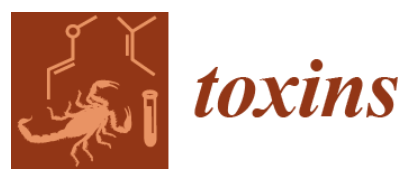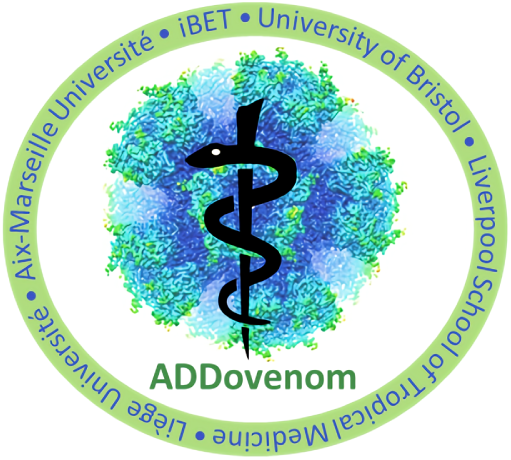Dr Stefanie Menzies and Prof Nicholas R. Casewell, ADDovenom researchers at Liverpool School of Tropical Medicine, have been chosen as Guest Editors of a Special Issue of the journal Toxins.
They said:
“Antivenom remains the gold-standard treatment for envenoming by snakes, scorpions, spiders and other venomous animals, yet remains largely unchanged since its first development in the 19th Century. Current antivenoms using animal-derived immunoglobulins are associated with numerous deficiencies as a result of this manufacturing practice, including poor efficacy, high manufacturing and treatment cost, high incidence of adverse reactions, and poor thermostability. Current strategies under investigation to improve the treatment of envenoming include the development of human/ised monoclonal antibodies (or cocktails thereof), rational immunogen design to enhance animal-derived antivenoms, and small molecule drugs, to name a few.
“The focus of this Special Issue of Toxins will be the development of next-generation envenoming therapies, spanning the breadth of current research from small molecules to immunoglobulins. We encourage original research and review articles that exemplify current research activities in next-generation treatments for envenoming by any venomous animal.”
Manuscripts can now be submitted for the Special Issue, Next-Generation Envenoming Therapies: From Small Molecules to Antibodies. The deadline for submissions is 20 July 2023.


